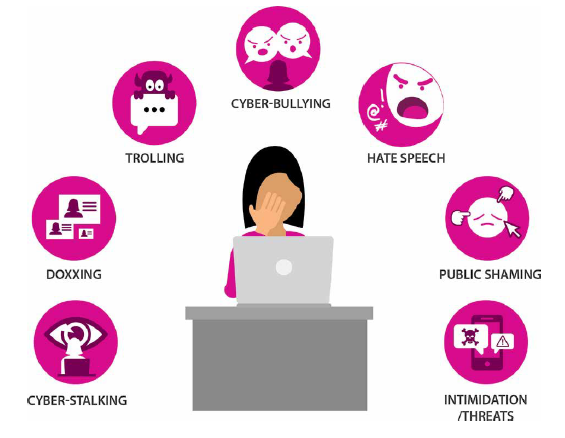To curb the spate of online violence targeted at children and women and reduce digital inequalities, a digital safety, rights and society advocacy group, TechSocietal, on Tuesday, organised an online safety workshop for civil society organisations and government sexual assault referral centres, among others.
Speaking at the event, the Head of Safety Africa, Middle East and Turkey at Meta, Sylvia Musalagani, stressed the need for safety for women and children online.
She further noted that a lot of non-consensual sharing of intimate images mostly affects women.
Data also showed that children and the underaged are exposed to risks, sexual abuse, rape threats and violence online.
Speaking on Meta’s policies, tools and technologies used to ensure safety for vulnerable groups online, Musalagani stated that platforms such as MyDigitalWorld and Parents Education Hub, among others, are tools used to create safety awareness and crime prevention.
She said, “Our number one mission is to give people the power to build community and to bring the world closer together. This is very important to us and for communities to be built, we need to ensure that safety is a priority.
“When it comes to safety, we have a diverse team of experts internally from various backgrounds such as law enforcement officers that are working with our organisation such as Homeland Security, Anti-trafficking experts, Child protection, online safety experts, Engineers and forensics investigators who are working address these issues.”
She noted that accounts that posted content shared with malicious intent on Meta platforms, were brought down.
Musalagani further stated that Meta was fighting online crimes with policies, sophisticated detection technology and AI, as well as, working with centres for missing children and law enforcement agencies.
During an interactive session, the Executive Director of the National Film and Video Censors Board, Adedayo Thomas, expressed worry over the low digital literacy that pertained to online safety in sub-Saharan Africa.
Musalagani further noted that Meta worked with child experts from the police, film censors board, and non-governmental organisations.
One of the participants, the coordinator of Ekiti State Sexual Assault Referral Centre, also known as Moremi Clinic, Mrs Rita Ilevbare, noted that the provisions in the Violence Against Persons Prohibition Act and the Child Rights Act had not been fully tested to bring succour to violated women and children.
She urged advocates for women and children to test the provisions of the acts to bring results.
But the Executive Director of Tech Societal, Temitope Ogundipe, stated that the non-adoption of the VAPP and CRA in some states posed a challenge to the increased successes of the act.
Ogundipe further decried the increasing vulnerability of children and adolescents to online risks due to the widespread use of the internet and digital technologies.
She added, “In Nigeria, a recent report by the Nigeria Communications Commission (2020) revealed that a staggering 90% of 4-16-year-olds in Nigeria have been exposed to cyber risks.
“Furthermore, women and girls in Nigeria are disproportionately affected by online violence and abuse, including non-consensual image-based sexual abuse, rape threats, cyberstalking, and doxxing.
“Perpetrators hide behind screens and anonymous profiles, evading accountability and consequences.”
Further discussions centred on the collaboration of owners of social media platforms with Nigerian law enforcement agencies on data sharing of arrested cybercriminals to ensure prosecution and justice.
However, the Meta representative further stated that the privacy laws prevented them the sharing user data with third parties.
“We are not allowed to share user data. We cannot even share it with law enforcement agents. We are governed by privacy laws that we have to respect.
“I understand the importance of sharing the data with law enforcement [agents], but we have to understand from the other side of things. This is an area where we have to strike a balance when we talk about freedom of expression, safety and privacy on the internet.”
The workshop, titled “Advancing Women and Children’s Safety Online in Nigeria: Image-based Sexual Abuse Prevention and Response”, was in partnership with Meta and funded by the Foreign, Commonwealth and Development Office through its Digital Access Programme in Nigeria.


